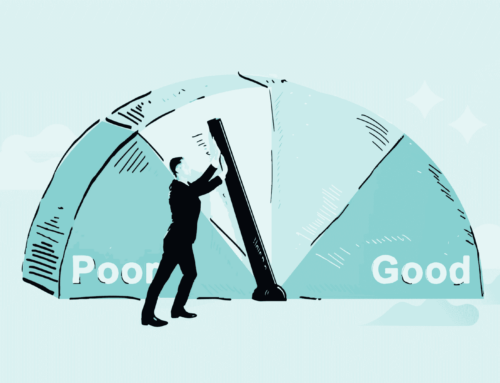How Often is My Credit Score Updated?
If you’re like the many other MyMarble Community Members who are actively seeking for ways to improve your credit score, you may be wondering how often your credit score is updated. It’s important to keep track of your credit score to ensure you’re making progress. So how often is your credit score updated?
Generally, your credit score is updated every 30 days. If you have a MyMarble Subscription, you will be able to check your credit score for free on the dashboard. In addition, if you’re a MyMarble Premium member, you will be able to check your TransUnion credit report too. Your credit score is calculated using the information on your credit report. That’s why checking both your credit score and credit report every 30 days can provide you with insight of your progress.
What Happens When My Credit Score Is Updated?
Your credit score is updated every month to provide the credit bureaus with new information regarding your credit profile. Since every month your payments are reported to the credit bureaus, this information will be then reflected in your credit report. In addition, because there is new information on your credit report, your credit score will update too.
It’s important to note that not all lenders will report to both TransUnion & Equifax. Because of this, it’s common to see a difference in your credit score depending on where you check it.
What Information Does The Credit Bureaus Need To Update Your Credit Score?
When your credit score is updated, your lender reports certain information to the credit bureaus. This information contributes to the calculation of your credit score. So, for example, if you missed a payment, you may see a decrease in your credit score. Or maybe you paid down more debt and lowered your credit utilization rate; you may see an increase in your credit score.
As mentioned, your lender may not report to both credit bureaus. For that reason, you may see a difference in your credit score depending on where you check it. Here are some examples of the information that TransUnion & Equifax use to update your credit score:
- Payment history 35% – The credit bureaus will look at whether you made a late or missed a payment. In addition, if you made on-time payments this will positively impact your credit score.
- Credit utilization 30% – Your credit utilization rate is your current credit balances against your total credit limits. It’s recommended to not use any more than 30% of your total credit limit to best benefit your score.
- Credit history 15% – The credit bureaus will look at how long you have had credit accounts open when calculating and updating your credit score.
- Credit mix 10% – Having a mix of revolving and installment credit shows to your lenders that you can handle debt well. For example, having a credit card, a car loan and a mortgage all in good standing will contribute to your credit score when it’s updated monthly.
- New Credit 10% – If you apply for new loans or credit accounts, this will be reflected on your credit score the next time it’s updated.
How Much Credit Points Can I Gain In A Month?
Depending on your financial habits, you can gain or lose valuable credit score points per month. For most people, it’s extremely unlikely to gain 100 credit score points in a month. If you’re looking to improve your credit score, it’s Important to stay consistent and be patient. But don’t worry, if you pay your bills on time, eliminate your consumer debt, and try to keep large balance on your credit cards, you credit will increase overtime. Check out some tips on what you can do to increase your credit score:
- Dispute inaccurate information on your credit reports: Sometimes, the information on your credit report may be incorrect which could affect your credit score. If you can check your credit report and notice any errors, make sure to contact the credit bureau to dispute it.
- Lower your credit utilization rate: If your credit card is constantly maxed out, this indicates to creditors you may not be handling your credit well. Try to lower your credit utilization rate to help boost your score.
- Pay your bills on-time: Missing or making a late payment can damage your credit score. Make sure you make your payments on-time each month to help build your credit score.
The Bottom Line
Every 30 days, your credit score updates because new information is sent from your creditors/lenders to your credit bureaus. This information is put into your credit report, and then reflected in your credit score. Because your credit report with either TransUnion & Equifax regularly changes, your credit score will change too. If you are looking for a way to check your credit score or report monthly, you can sign-up for MyMarble Premium here.






